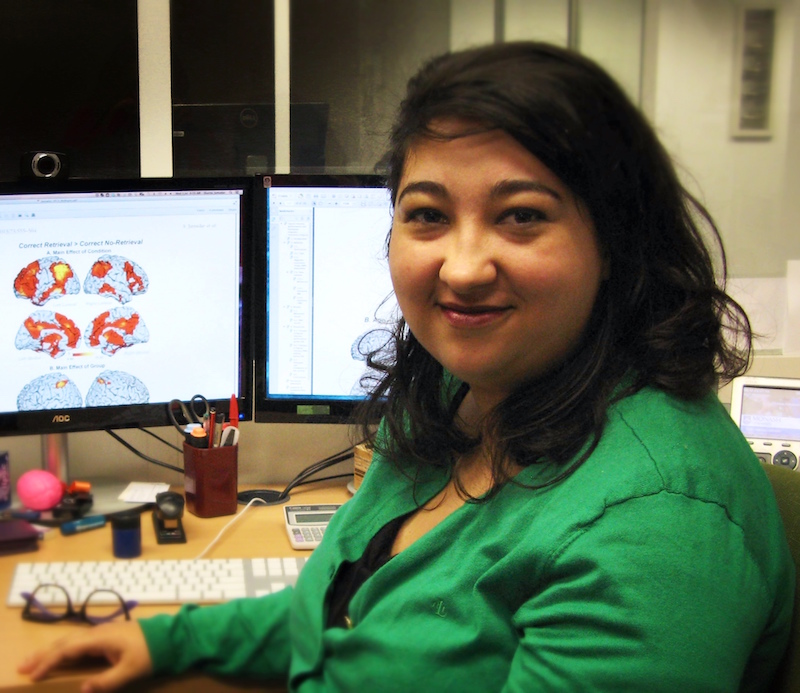Dr Jamadar is focused on cognitive reserve and its protective effect against age-related cognitive decline.
Cognitive reserve refers to the mind’s resilience to changes in the brain. While it is recognised that cognitive reserve can provide a protective effect against the onset of age-related cognitive decline and dementia, the neural mechanisms of this effect are poorly understood. Ageing is associated with widespread changes in the metabolic efficiency of the brain: metabolic inefficiencies underlie the functional cognitive impairments seen in older age, and also may trigger amyloid misfolding, leading to Alzheimer’s disease.
At Monash Biomedical Imaging, we have spent the last 9 months developing a novel simultaneous MRI-PET protocol that, for the first time, allows simultaneous acquisition of BOLD-fMRI (brain function) and FDG-PET (glucose metabolism). Furthermore, our protocol provides substantial improvements in the temporal resolution of FDG-PET, allowing us to dynamically track changes in glucose metabolism in response to a task. We are now ready to implement this novel protocol to the study of cognitive reserve in healthy ageing.
In the coming weeks, we will begin recruitment for two studies. The first will compare 50 cognitively normal older (over-65 yrs) vs. 50 younger (18-25-yrs) adults in simultaneous BOLD-fMRI/FDG-PET imaging of brain activity and glucose metabolism during a cognitive task. Measures of brain reserve will be associated with out-of-scanner neuropsychological measures of cognitive reserve, to understand the structural, functional and metabolic predictors of cognitive reserve. In the second study, we will study the emergence of cognitive reserve across the older adult lifespan. Cognitively normal adults (n=100) aged 40 years and over will undergo two scans: a resting-state simultaneous BOLD-fMRI/FDG-PET scan and an amyloid PET scan to quantify brain activity and metabolism in the presence vs. absence of amyloid.
This work is led by Prof Gary Egan, Director of MBI; Dr Sharna Jamadar, Head of MBI’s Cognitive Neuroscience of Ageing lab; and Dr Zhaolin Chen, Head of MBI’s Image Analysis team. Important computational work has been conducted by Dr Shenpeng Li, Dr Phillip Ward, Francesco Sforazzini and Jakub Barun. Our wonderful data acquisition team, Winnie Orchard, Irene Graafsma, Disha Sasan, Richard McIntyre, and Alexandra Carey manage the complex cognitive and imaging acquisition component.
We are currently looking to recruit healthy older adults aged 65 years to participate in this study. If you are interested, please contact Irene and Winnie at miccn.cogneurolab@monash.edu.au for more information.




0 Comments